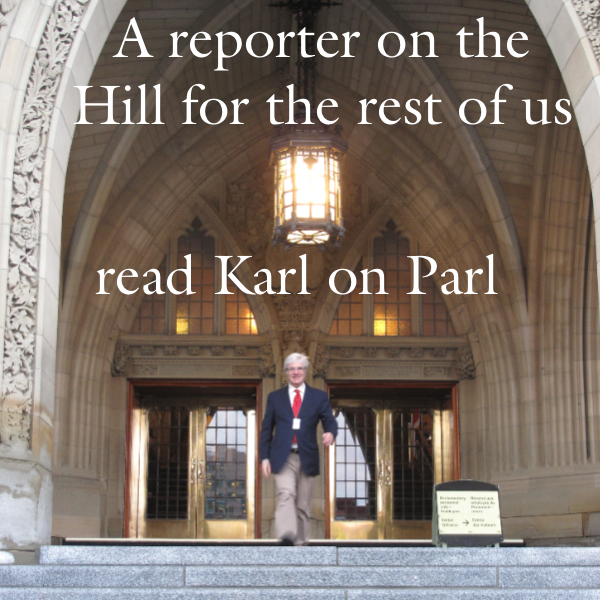Olivia Chow is resigning from Parliament and returning to municipal politics in Toronto with a run for Mayor.
Her campaign in Toronto will create a big hole in the NDP caucus and trigger a byelection in Toronto’s Trinity-Spadina, a riding that has passed back and forth between Liberals and NDP since 1988.
Chow’s departure also means that Parliament will lose one of its rare members whose stature has risen above partisanship; who has commanded respect from all sides of the House.
As the NDP’s Transport and Infrastructure critic, Chow has been hardworking, focused and knowledgeable.
She has doggedly pursued issues such as rail and truck safety, putting fact and evidence-based questions to the government. She focused on key issues related to the transport industry without trying to make partisan points.
Like her late husband, former NDP Leader Jack Layton, Chow seems to believe in “proposition not opposition.”
The Member for Trinity-Spadina has been diligent and persistent in holding the government accountable for its management of transport and infrastructure, which is the job of an opposition MP. But, more important, she has actively pushed a broader and more creative federal agenda on transport.
Like millions of other Canadians, Chow has seen how transit in most of Canada’s major metropolitan areas is a mess. Toronto and Montreal have punishing commute times, with some of the worst traffic congestion in the world, and other, smaller Canadian cities struggle as well.
On a national scale, Canada’s urban public transit system is a frayed patchwork quilt. Despite that fact, successive federal governments have paid little heed to public transit, beyond throwing a bit of cash cities’ way via the federal gas tax.
Back in 2011, Chow thought it was time the federal Parliament did more about the crucial business of mass urban transit.
The NDP MP believed the government of all of Canada should elaborate a nation-wide public transit strategy, and she proposed as much in a private member’s bill. The House Transport Committee, on which Chow sits, considered that proposal, but Conservative members evinced little interest.
Conservative committee members treated Chow with a somewhat greater measure of respect than they do most opposition members. However, they made it clear that they consider urban transit to be a provincial responsibility, and did not want their government getting involved.
Chow was not, in fact, suggesting the federal government should interfere in the affairs of the provinces, or those of the provinces’ constitutional “creatures,” the cities. She was merely insisting that the federal government is in a unique position to forge a vision of public transit for all of Canada. Any action Ottawa took, she tried to explain, would be in full collaboration with the provinces and cities.
In any case, raising the jurisdictional argument was something of a red herring on the part of the Conservatives.
When it suits their purposes — see under ‘Canada Job Grant’ — the Harper Conservatives are only too happy to stomp all over the prerogatives of the federal government’s notional partners in the Canadian federation. What more likely turned Conservative MPs off Chow’s idea was a near-intuitive aversion to public services, especially transit services.
Like Toronto’s current mayor, Rob Ford, most Conservative MPs are big fans of the private automobile. They tend to view public transit as not much more than an expensive sop to the kind of folks who are not likely to vote for them.
Getting the federal government involved in a national effort to improve urban transit will have to be a job for a future, more environmentally and socially aware Canadian government.
Can Chow raise the level of discourse in Toronto?
More recently, Chow had turned her attention to Canada’s much neglected passenger rail company, Via Rail, by means of another private member’s bill.
Anyone who has experienced the excellent passenger rail services of Europe and then tried Canada’s own creaky, archaic system knows that such an initiative is long past due.
With Chow’s departure from Parliament, Canadians have to hope that other MPs will step in to pick up the torch and keep pushing the significant and often ignored issues that have been dear to her heart.
In Toronto, she is now launched on a very different sort of political voyage.
To call the municipal politics of Toronto, of late, a circus would be a slander to circuses. With Ford as its leading man, Toronto’s politics are more on the lines of Grand Guignol theatre.
We’ll see how Chow deals with the sleazy and salacious aspects of the Toronto municipal arena. She starts out with the respect of her Ottawa colleagues of all parties, and with a reputation for handling herself with dignity and courage.
How that will play in the mud wrestling that is Toronto politics — well, that’s hard to say. We can only hope something of Chow’s dignity will rub off on the rest of the Toronto mayoral field, especially on the current incumbent.




